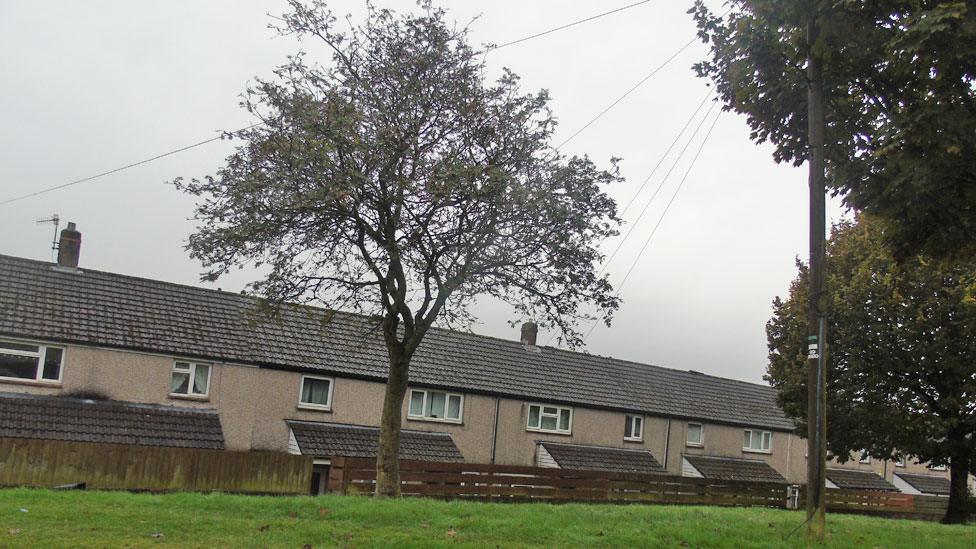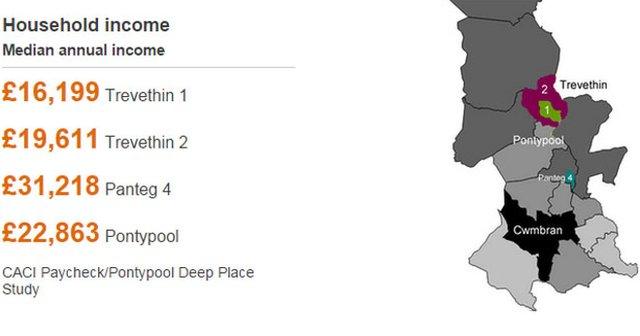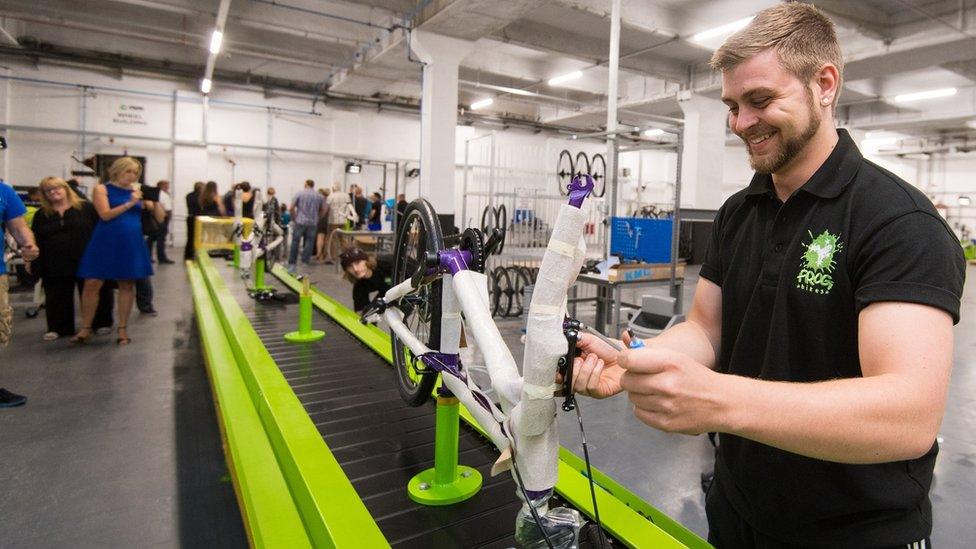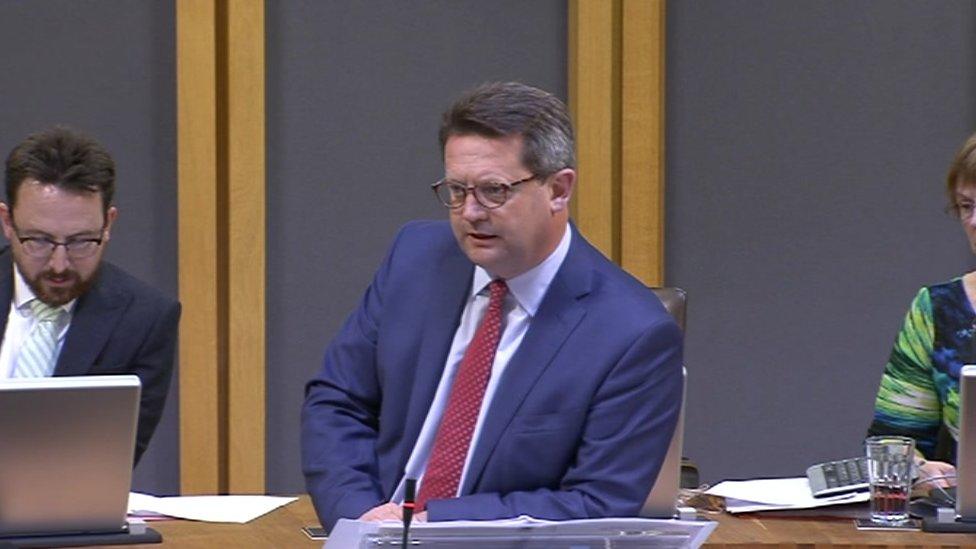M4 relief road 'would offer little' to valleys towns
- Published

Major infrastructure projects such as the M4 relief road and Metro offer "little" to some communities, according to an in-depth study of a valleys town.
It found people living in poverty close to the relatively affluent in different communities in Pontypool, Torfaen.
In one part of Trevethin, 13% of people have never worked and 75% of under fours live in low-income households.
Author Dr Mark Lang urged a strong focus on local economic solutions to try and tackle the issues.
He said the Welsh Government concentrated too much on infrastructure and an "investment ready" skills base to lift the economy.
The £1.1bn M4 relief road south of Newport is due to go to a public inquiry early next year - the motorway lies about 10 miles south of Trevethin.
The proposed South Wales Metro includes Pontypool and New Inn railway station - on the outskirts of the town - in the network map.
Dr Mark Lang said there needed to be more balance between big projects and local economic growth
Bur Dr Lang wants more of a balance with policies to eradicate poverty and revive local economies.
"Some of the key economic priorities that have emerged in Wales, notably the proposed construction of an M4 relief road around Newport, appear to offer little to the well-being of future generations," he said.
"They also appear to offer very little to the people and town of Pontypool, who like other communities have not been engaged in the conversation around setting the economic policy agenda."
Poverty is generally classed as households which earn 60% or below of the average income.
His study, which follows similar research in Tredegar, Blaenau Gwent, two years ago, drills down into neighbourhoods to look at how people in poverty can co-exist with people who are better off.
Steve Harris runs Saving Vinyl Music at Pontypool market
Anthony Hunt, deputy leader of Torfaen council, defended the regional approach and the drive towards a £1.2bn Cardiff capital region deal.
He said city regions could "bring a scale, an ambition to the south east of Wales."
We have an area of 10 councils, if we really work together, we can combine that scale with the local knowledge we can bring to the table," he added.
Dr Lang, who produced the report with the support of Cardiff University's Sustainable Places Research Institute, said in towns like Pontypool, especially the poorest parts, commuting to big cities is not viable for many people.
He said there needed to be more of a balance between regional and national development.

The council has boiled down what was needed into key priorities, such as raising education attainment, which in turn would attract more employers.
Mr Hunt said welfare reforms had "exacerbated inequalities which had already existed" between different parts of the town.
He said a mix of local projects to help the more vulnerable and larger investments were the way ahead.
"We have Frog Bikes just down the road - they are the sort of quality jobs we're trying to get into the area to really boost the local economy. Both have to work hand in hand."
A Welsh Government spokesman said Economy and Infrastructure Secretary Ken Skates was developing "a new strategy to support economic growth across every community in Wales and this report is a helpful contribution to that work".
He added the government's valleys taskforce "is looking closely at how we can stimulate investment and bring better quality jobs to areas impacted by the de-industrialisation".
- Published16 August 2016

- Published5 July 2016

- Published18 October 2016

- Published8 August 2016
